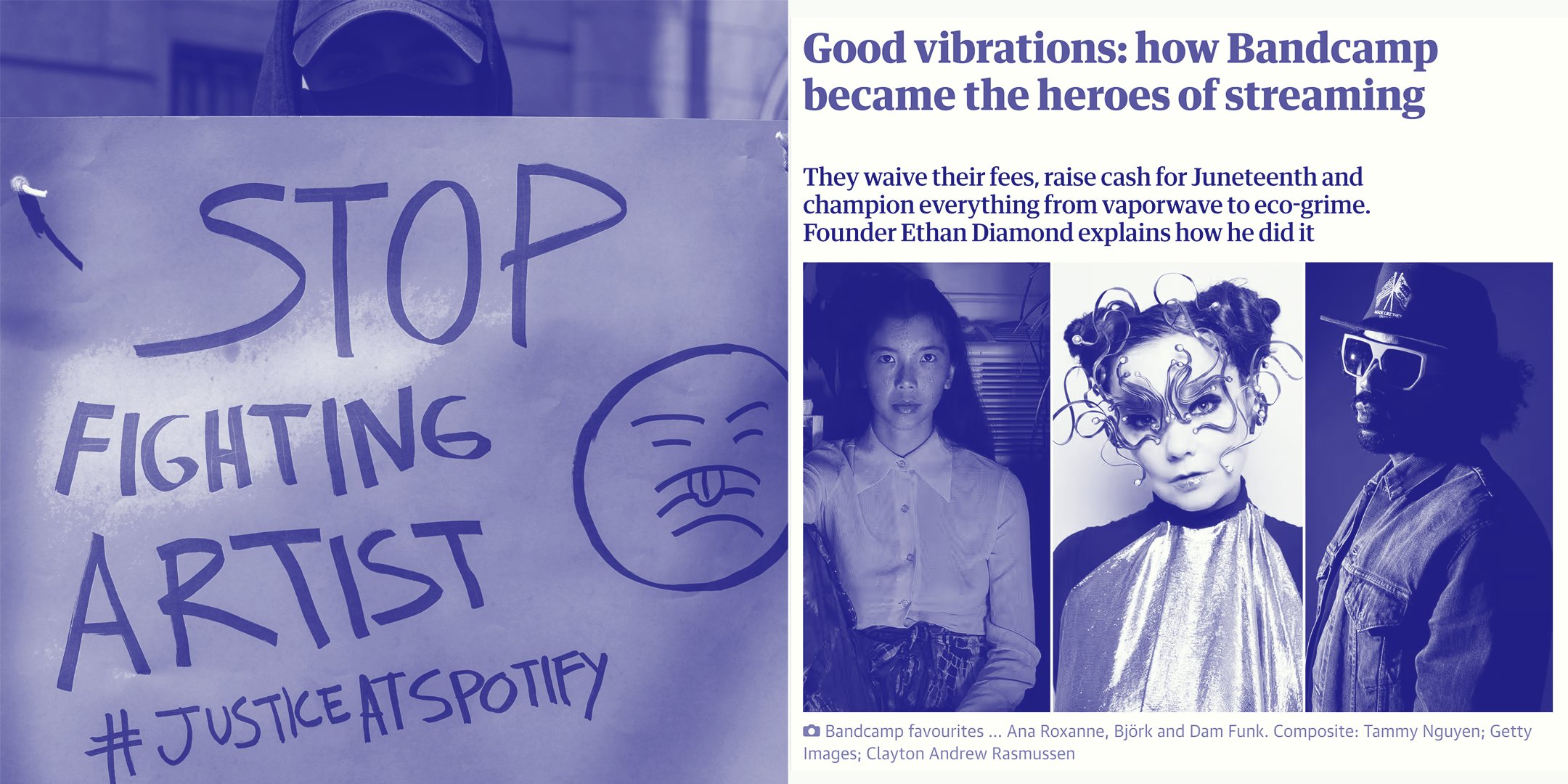From Protest to Proposal
— Subvert
When Bandcamp sold to Epic Games, we reacted.
When Bandcamp was sold again to Songtradr, we reacted.
When half the staff was laid off, we reacted again.
Each time, we witnessed the same pattern: a flood of tweets expressing betrayal and concern, passionate discussions about the need for alternatives, and ultimately – resignation. The community's response revealed a painful truth: despite Bandcamp's reputation for putting artists first, we had no real power to protect what we had come to rely on. No seat at the table. No voice in decisions that affected us all.

In 2020, the contrast was telling. While artists were protesting outside Spotify's offices demanding fair compensation, Bandcamp was being celebrated as the ethical alternative – the "Anti-Spotify." But our praise for Bandcamp's generosity masked a deeper vulnerability. We confused corporate benevolence with structural accountability. We mistook good intentions for systemic change.
What if we had recognized this earlier? What if, instead of only celebrating Bandcamp Fridays, we had pushed for something more fundamental? This could have included:
- Proposing accountability agreements with the founders
- Building mechanisms for community oversight
- Agreements for greater transparency
- Securing board seats to ensure artists had a voice in major decisions like acquisitions
The pattern is familiar: We wait for platforms to betray our trust, then we protest. We're good at naming shared pain. We know how to voice digital protest. But protest alone won't build the infrastructure we need.
As filmmaker and writer Astra Taylor noted in The People's Platform, we need an "inside/outside strategy: building cooperative alternatives on the margin while challenging the existing structures at the center."
This is why we Subvert exists. Our current moment requires going beyond critiquing the present, towards building something new.
Creating viable proposals is hard.
Proposals require us to answer difficult questions that protesting alone does not: Who will build it? How will it be funded? How will it compete and self-sustain? What trade-offs are we willing to accept?
Working through these questions in good faith often reveals complexities that pure critique can ignore.
It's easier—and safer—to be cynical. Judging by the past record of online platforms, skepticism is the smart bet. Why risk disappointment? Why risk feeling naive? Choosing a "wait-and-see" approach is safer.
Subvert now has 1,350 Founding Members that are choosing a different path. We're not waiting to react to the next platform betrayal. We're actively building an alternative—a music marketplace that we will collectively own and control.
This is your invitation to join us.
Subvert isn't just another platform marketing itself as "artist-friendly". We've developed a structure for collective self-determination, with accountability and democratic control built into its very DNA. A platform fully owned and controlled by a cooperative.
The legal frameworks are extraordinarily researched and in being put in place. The governance structures are being refined. The platform development is underway.
The question isn't whether collectively owned platforms are possible—the question is whether you'll be a part of it with us.
As a co-owner, you're not required to participate in any feedback sessions or governance discussions. But, if you would like to participate, there are many places for your voice to have real impact. Help us determine critical policy positions. Become an elected Board member. Advocate for that one feature you always wanted. Inform our fundraising strategy before accepting a dollar of outside funding.
Will you join our Founding Members in shaping our collectively owned platform?
Or will you wait until there's something new to protest?
Sincerely Ours,
Subvert